Blog
Advancing Leadership for Women Faith-Based Mediators
A reflection piece of the women faith-based mediator training in Accra, Ghana by Sakinatou Adamu Abdou
This blog shares my experience in taking the training on religion, peace mediation and leadership for women faith-based mediators in Accra, Ghana, 1-4 May 2024.
When I was selected for this training, I was so happy and excited because I was going to travel out of my country for the first time and watned to get a deeper understanding on how religion can influence mediation processes and conflict.
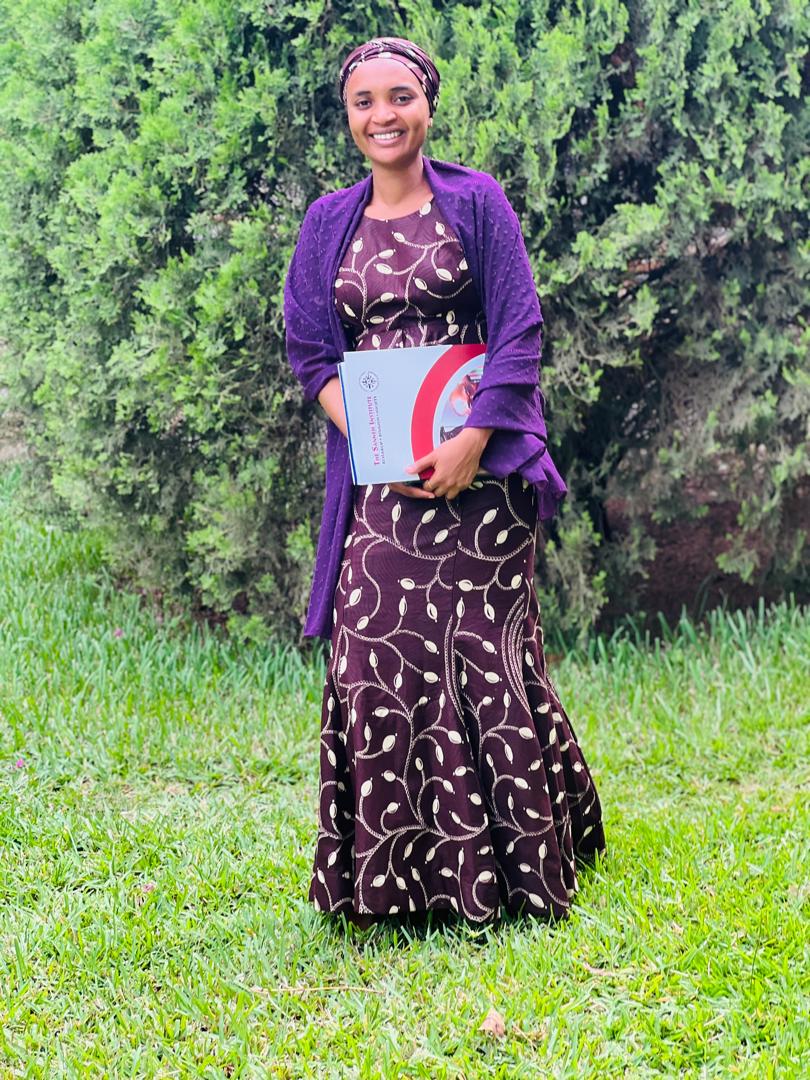
Sakinatou Adamu Abdou at the Women Faith-Based Mediators training in Accra, Ghana.
The night before my journey to Accra, I couldn’t sleep because I was thinking about how I would be on a plane for the first time. On the day I was to travel, I woke up very early and got ready for the airport at 7AM so that wouldn’t be late or miss my flight. Upon my arrival, I met other fellow Cameroonians who were also traveling for the same training. We all did things together, making it easier for me and I also felt relieved. I was taking pictures of everything and everywhere to document the moment and experience. The most exciting part was when I got onto the plane and when the plane was taking off and I felt all the intestines of my belly shaking and I was so scared, and I almost shouted out for help as I was sitting by the window alone with three seats. I immediately started praying and begging God to forgive all my sins and I didn’t want to die of a heart attack because I choose to travel by plane.
The first day of the training began with an introduction about the Network for Religious and Traditional Peacemakers and what it has been doing for about a decade now. We were introduced to some key terms, including religion and peace mediation. I got to understand Christianity is the largest religion in the world as per the statistics done in 2015 and now Islam is the second largest and the fastest growing religion in the world. It was estimated that by 2060 Islam is going to be the most dominant religion.
We then learned about ‘Spiritualizing our Struggles.’ During this presentation, I got to understand a lot about praying and putting all of your struggles in prayers and how it can help you and the people around you. As mediators, we have to learn how to spiritualize our work and also learn to accept and tolerate others’ beliefs while working with them in order to avoid conflicts or clashes. We were also taught a prayer for activists.
We then talked as a group about the challenges we are facing in our work as young women mediators of faith and the types of support we need to tackle these challenges. During this session, I got to network and meet people from other countries where we discussed our organizations and what they do in the areas of peacebuilding and gender-related issues. After the group, I got the opportunity to do a presentation for my group and learned some of the challenges young women were facing in different communities and some of the proposed solutions they have used to remedy the situations.
Later in the day, we also had a grounded presentation on storytelling and how to tell our stories. I must say, this is one of my best sessions as I got to use the guide provided to jot down some amazing things about me that got me thinking that this is something I needed to be doing, but I have had no intention of doing. This exercise helped the young women faith-based peace mediators to understand the role we play and how to understand ourselves to be able to work with others.
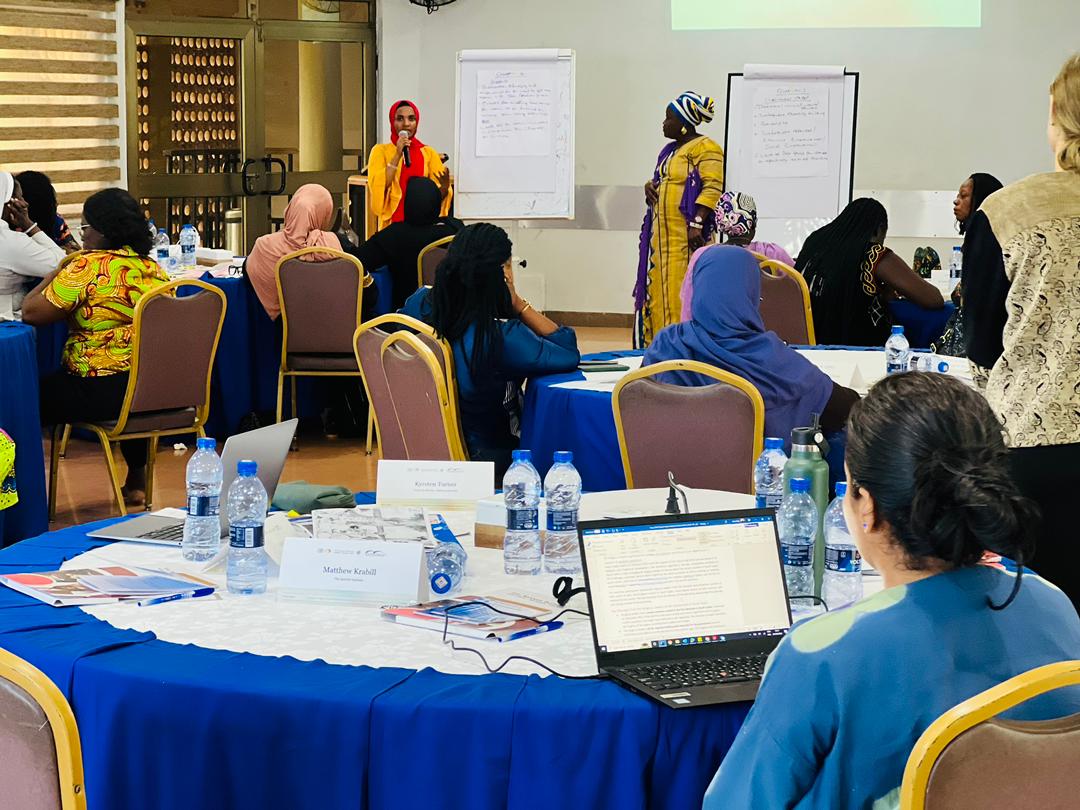
Sakinatou providing a readout from her group’s discussion.
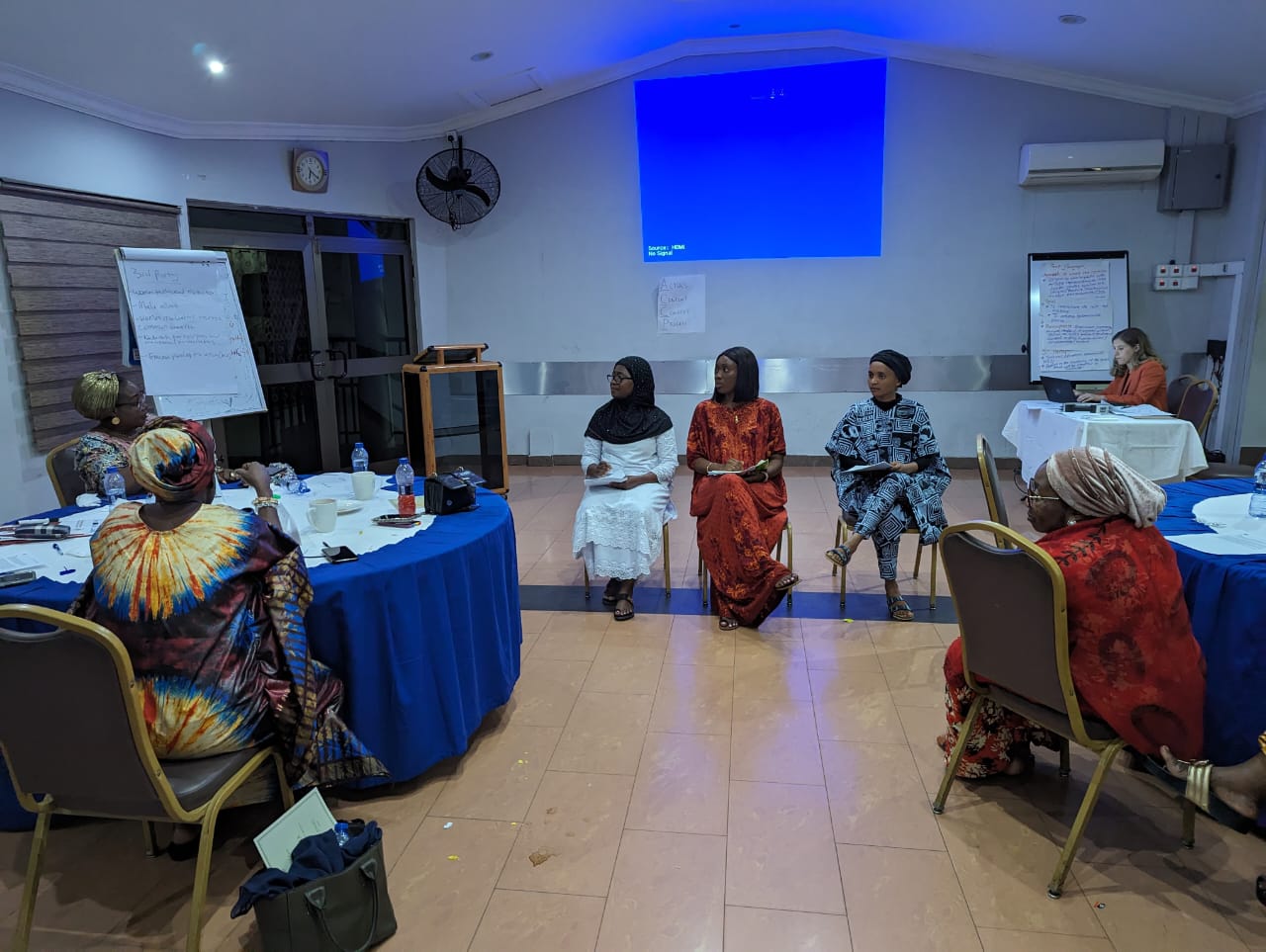
Sakinatou participating in the mediation team during the simulation exercise.
Day 2 was the best day of the training because it was so insightful and impactful to me. We covered compassion fatigue and vicarious traumas. I really enjoyed every part of the training and the various examples used because I could relate more to this because of what I had been through in my life, and I didn’t know how to go about it. But through this session, I got to understand how you can get out of such situations and how to help others who need psychosocial support and therapy and how to deal with post-traumatic stress. I got to learn some techniques that you can use during the day to relieve yourself through healing, connecting, relief and isolation. Participants got to share their experiences which they have gone through and also how they handled it during this session.
For days 3 and 4, we were divided into groups according to our countries and we were asked to come out with our country’s flags and unique colors. The task of the day was to identify an ongoing conflict in your country and to perform a conflict analysis. We Cameroonians chose the Anglophone Conflict, the Ghanians chose the Chieftance Conflict, and the Nigerians worked on the Jos Crisis between the indigenous and settlers. Through the presentations, we got to learn about some of the conflicts that have happened in these areas and what role has women of faith and religious leaders have played in maintaining peace and security or facilitating dialogues and mediation to put an end to the conflicts in their communities.
We then went for an excursion in downtown Accra. This was so fun, as we sang and laughed on the bus while going. We visited places like the Accra Arts Center, the State University, the Freedom and Justice Star Building, the Sporta Stadium, markets and much more.
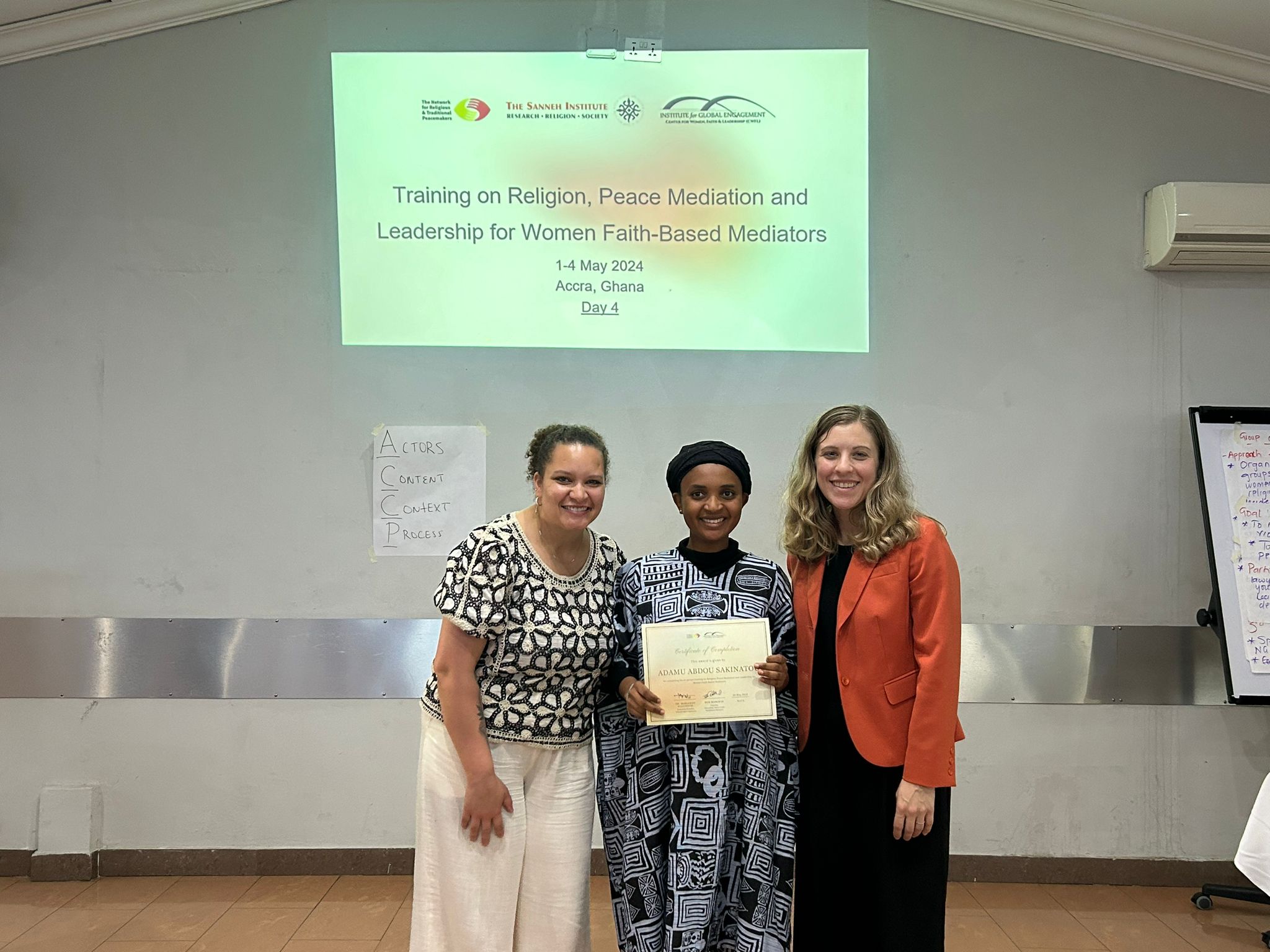
From left to right: CWFL Trainer, Kyrsten Turner and NRTP Trainer, Jessica Roland presenting Sakinatou Adamu Abdou’s course completion certificate.
Our final exercise was the most fun part of the training, which was a simulation session. I was a mediator in this session, with two other fellow participants and working on the Israel-Palestine conflict. It was at this point that I realized that it is not easy to be a mediator as the parties involved and it can make you cry if you aren’t strong by trying to make everyone feel comfortable and understand each other. It was an amazing time as we all had to get corrections on what went wrong and right and what we could have done better, but trust me, I loved and enjoyed as they make you do things differently and from that you get to understand more about it.
It was my first time in Ghana, but I got to enjoy the weather and experiences I had there as I had the opportunity to learn how to say welcome (awaba) and thank you (midasay). After the training, when I posted on social media about the training, I was contacted to come share my practical experiences as a mediator with some masters degree students in the University of Buea and I have also been called to facilitate a training on Religion, Peace and Mediation.
About Sakinatou Adamu Abdou
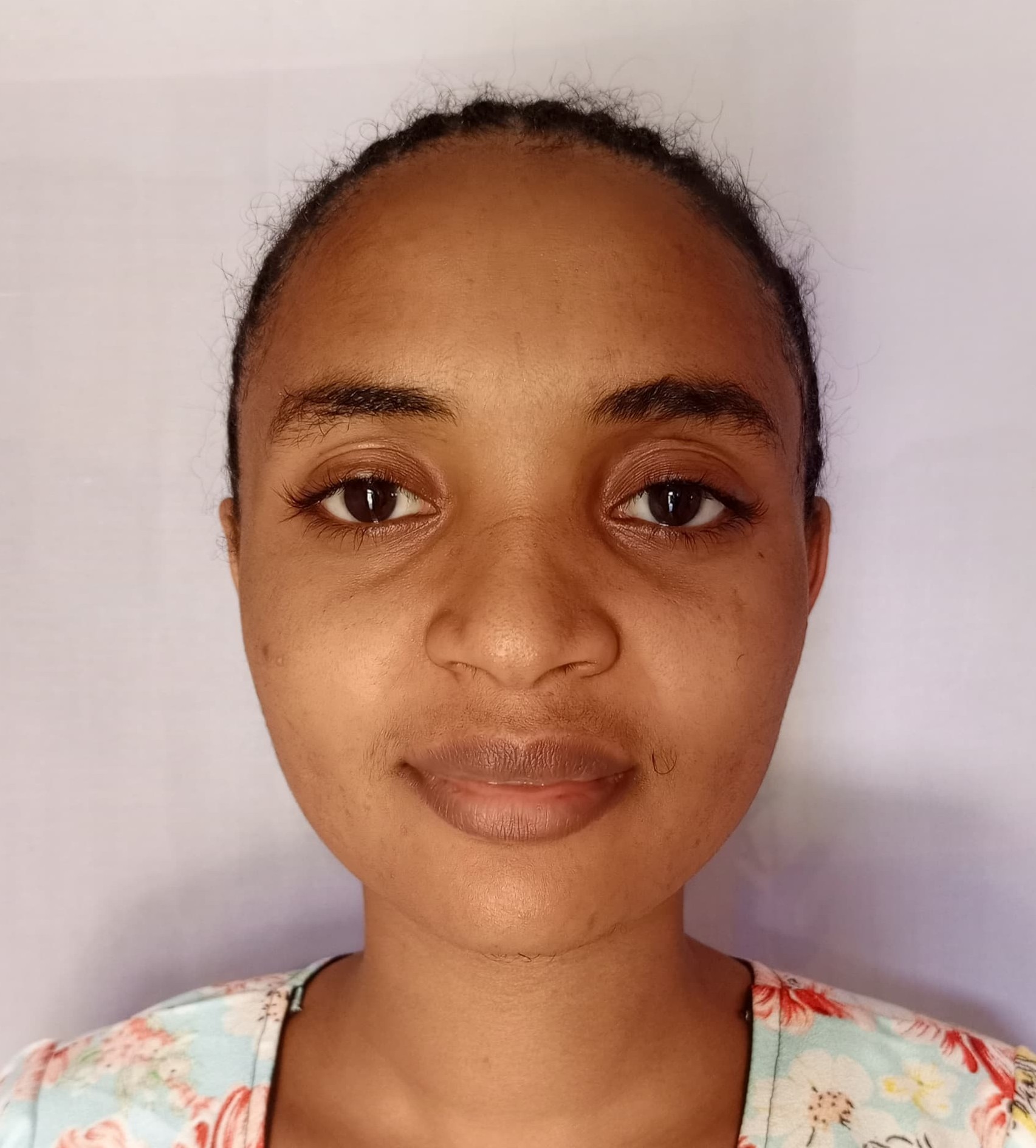
Sakinatou Adamu Abdou is from Bamenda, Cameroon, and works to advance the rights of indigenous women and youths by advocating for their effective participation and inclusion at all societal levels. She is a Master’s student at the University of Buea, studying conflict resolution. Sakinatou has carried out and participated in peace building trainings and workshops on the role young people in maintaining peace and security organized by NewSETA(through REPAIR) LOYOC, RADA, ASOWWIP and Network of Young Peace builders NW. She was trained as a community mediator by ASOWWIP and has contributed to much advocacy work on UNSCR2250 in schools.
Follow the Network on social
